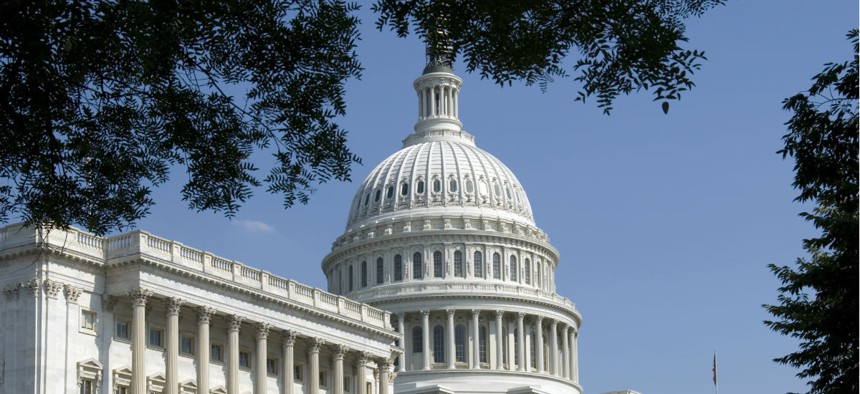No Sequestration This Year, A New Hiring Authority for U.S. Marshals and More
A weekly round-up of pay and benefits news.
The Congressional Budget Office said last week that sequestration measures likely will not be required after Congress passed its omnibus spending bill to run through the end of the 2017 fiscal year.
Automatic discretionary spending cuts, which run through 2021, were set in motion with the 2011 Budget Control Act and implemented after the so-called “supercommittee” on deficit reduction failed to act in 2012. In 2013 and 2015, Congress increased the caps on both defense and non-defense spending.
Since then, CBO has issued guidance each year on whether agencies will need to undergo sequestration measures, based on whether federal appropriations bills exceed the automatic caps on spending, typically after a session of Congress ends in January. But since spending levels for fiscal 2017 were not finalized until Congress passed an omnibus earlier this month, CBO could not issue its report until May 12.
Even though sequestration is unlikely to kick in, feds worried about furloughs aren’t out of the woods yet. CBO’s report noted that the last word on whether to implement sequestration rests with the Office of Management and Budget, which has already ordered agencies to come up with ways to reduce the government’s footprint by the end of June.
Meanwhile, Sen. Orrin Hatch, R-Utah, led a bipartisan group of lawmakers Tuesday when he introduced legislation making it easier for the U.S. Marshals Service to hire criminal investigators.
The bill (S.1124) would give the Marshals Service excepted service hiring authority, which means it would not be subject to competitive hiring rules.
Dominick Stokes, vice president for legislative affairs for the Federal Law Enforcement Officers Association, applauded the effort in a statement.
“Your proposed legislation will grant the U.S. Marshals Service the authority to recruit and retain key GS-13 level Deputy U.S. Marshals and elevate their position to the important national security standing they deserve,” Stokes wrote. “These valiant public servants track down and apprehend the ‘worst of the worst’ in our nation, answer our nation’s call in catastrophes, monitor and transport dangerous criminals and protect the safety of our federal courts, witnesses, federal judges and others as authorized by the president.”
In retirement news, officials at the Thrift Savings Plan have updated the beneficiary form for federal workers and retirees to make it easier to fill out and to provide more flexibility to enrollees.
Among the changes is a relaxing of the witness requirement so that now only one witness’ signature is necessary, although that person must sign and date all pages of the form. The form now allows for upwards of eight primary beneficiaries, and up to four contingent beneficiaries.
The new form also makes it easier to fill out basic information, particularly beneficiaries’ addresses.
CORRECTION: The original version of the column said that Sen. Orrin Hatch's bill to ease hiring for U.S. Marshals Service criminal investigators included language that would elevate Deputy U.S. Marshals to a journeyman GS-13 level in the pay scale. The final legislation introduced did not include this provision.








